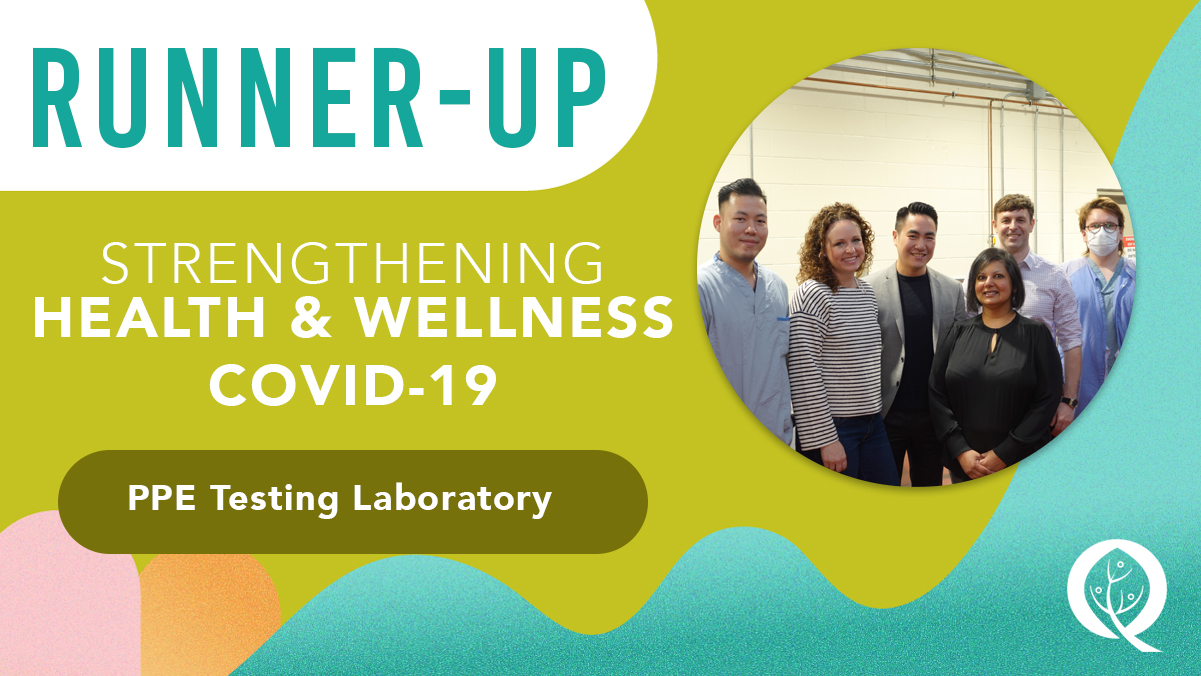Before the COVID-19 pandemic, health care workers in BC likely didn’t think twice about whether their personal protective equipment (PPE) was safe.
They simply ordered their gowns, masks and other equipment through the provincial supply chain managed by the Provincial Health Services Authority (PHSA), and trusted it wouldn’t be of poor quality because it came from North American vendors with stringent quality-control measures.
Then came COVID-19, increasing the use of PPE around the world at the same time that global supply chains were disrupted and the United States – where most of BC’s suppliers were located – began limiting exports. Suddenly, it became nearly impossible to secure medical-grade PPE. Worries rose as supplies dwindled to about 10 days of stock.
There were new, untested suppliers out there, mostly from overseas, but how to ensure their products were legitimate and safe for health care use? Vendors claimed their products met international PPE standards, but a visual inspection and suspect documentation sometimes showed it did not. For other equipment, a lab test was needed to demonstrate its legitimacy. So, too, was lab testing needed to ensure safety of decontaminated N95 respirators, which was seriously considered as a contingency when supplies ran low.
In March 2020, Vancouver Coastal Health’s Quality & Patient Safety (QPS) and Infection Prevention and Control (IPAC) teams knew a solution was needed, and fast. But becoming the Canadian leader in PPE testing solutions can only be accomplished through significant collaboration with local, provincial and national partners.
At VCH, a multidisciplinary team was assembled that included the QPS and IPAC teams, as well as People Safety, Innovation and Transformation, Medical Microbiology, Facilities, Maintenance and Operations, Biomedical Engineering, and Medical Device Reprocessing. Through collaboration with partners across the health authorities, as well as the Ministry of Health, PHSA Supply Chain, the Canadian National Research Council (NRC) and many others, they created Canada’s first health-sector-based PPE Testing Laboratory (PTL) in a newly equipped lab space at Vancouver General Hospital in June 2020.
Four months later, the PTL received International Organization for Standardization (ISO) accreditation via the Standards Council of Canada, a process that usually takes years. With a dual mandate – to ensure the quality of PPE for BC health care workers, and to support Canadian PPE manufacturers to strengthen national PPE supplies – the PTL began offering testing services for the health authorities and for local PPE manufacturers. Shortly after, the PTL began providing testing services to other Canadian health authorities outside BC as well as national health agencies.
The PTL has worked in close partnership with PHSA Supply Chain to perform lot testing of isolation/surgical gowns, N95 respirators and medical masks to ensure that no substandard PPE was used by health care workers.
By August 2022, the PTL had prevented 2.4 million unsafe N95 respirators and 325,000 unsafe gowns from entering the provincial PPE supply chain. It also confirmed that 1.75 million respirators and 981,000 gowns were safe to use in health care settings. Its testing services have also helped local manufacturers receive certification for their PPE, which in turn improved the Canadian supply chain, and created a more resilient market that will prevent future shortages. Using local PPE within the health authorities also supports VCH’s vision of improving planetary health.
In addition to PPE testing, the PTL has been a leader in the broader Canadian PPE community. It has had the opportunity to provide subject matter expertise to novel Canadian PPE standards. The PTL has also worked closely with the NRC to develop a Canadian inter-laboratory comparison study of medical masks. To help identify innovative PPE solutions and contribute to data-driven decisions, the PTL has also undertaken a number of research initiatives. These include evaluating the effectiveness of decontaminating N95 respirators during supply issues, comparing the effectiveness of singular vs. double masking, and evaluating portable HEPA purifier use to provide best-practice guidance. The PTL has also contributed to provincial guidance on Aerosol Generating Medical Procedures.
Most importantly, the PTL has helped ensure that health care workers can be assured they will be safe in their work, protecting patients and providing exceptional care without having to worry about the quality or safety of the PPE they are using.


